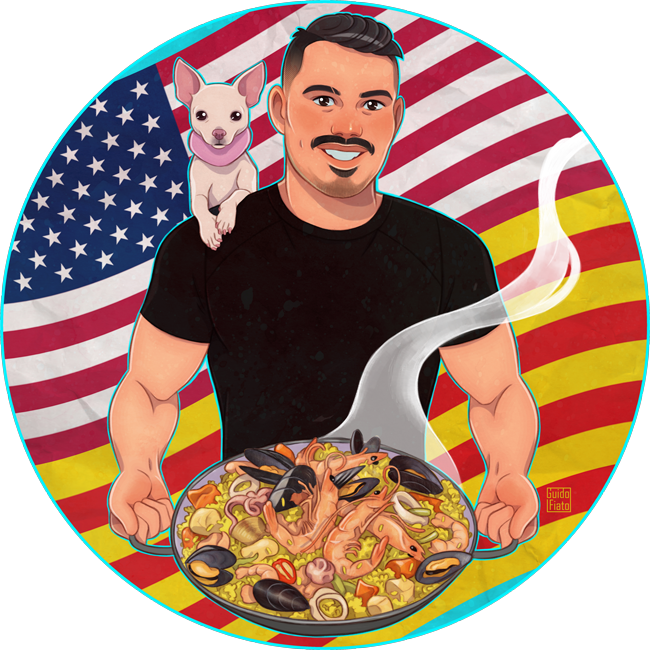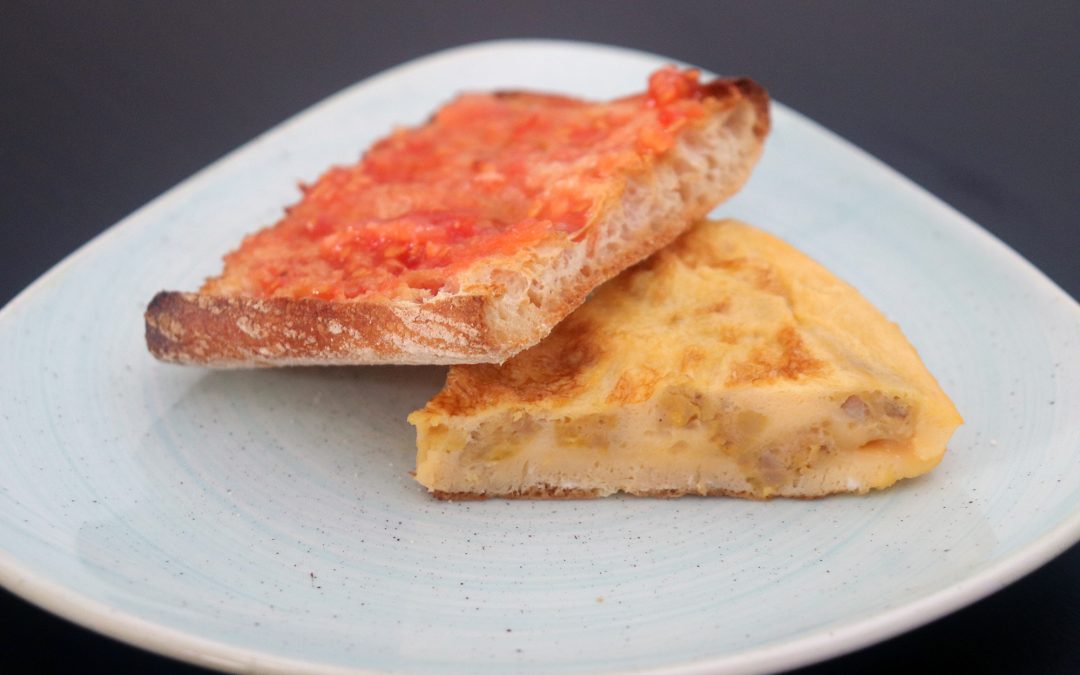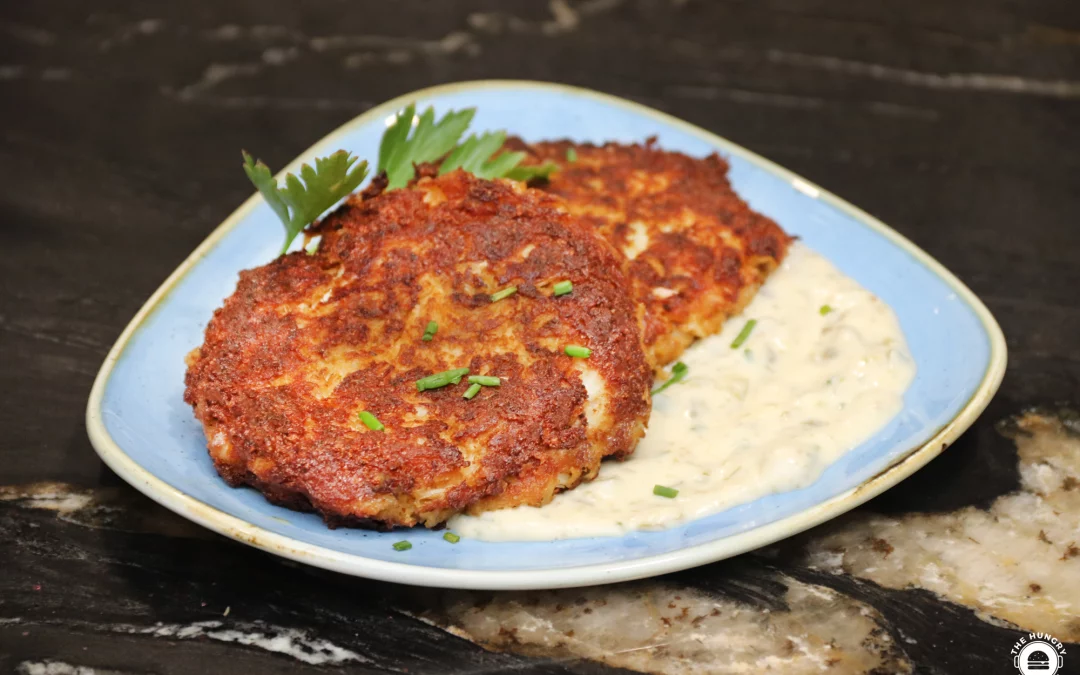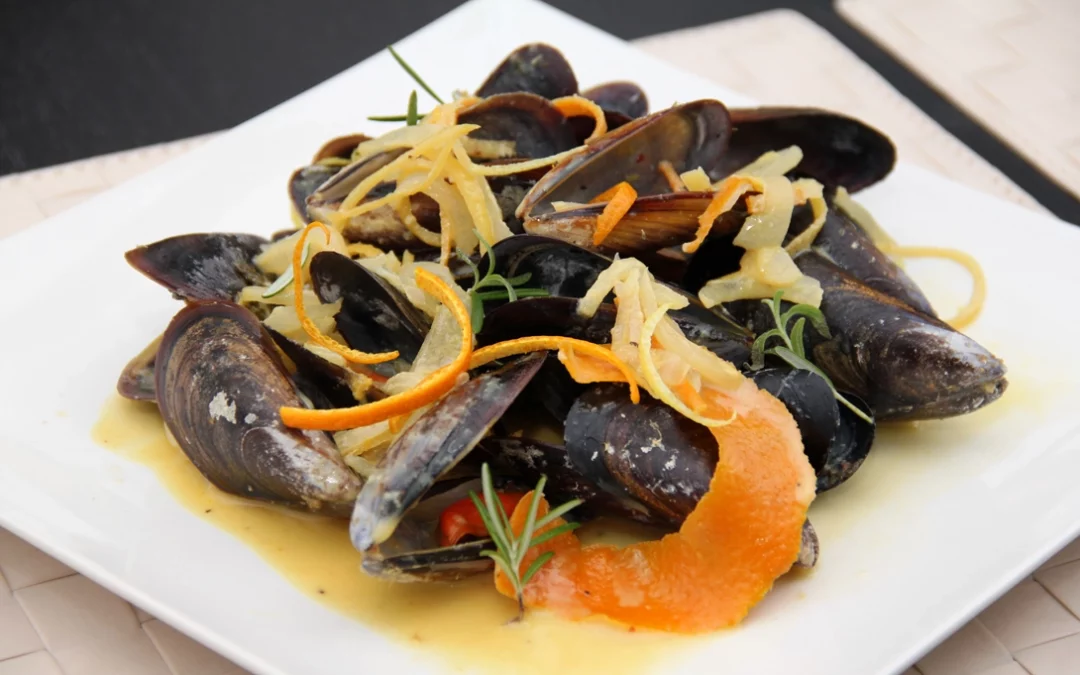CATALAN FOOD
Botifarra esparracada
Botifarra esparracada is a quintessential autumn dish in Catalonia, combining the region’s most iconic sausage with wild mushrooms. In this recipe, I use rovellons (bloody milk caps), creating a rustic, woodsy flavor that perfectly captures the essence of fall in Catalonia.
45 minutes by Anthony Hadley
45 minutes
by Anthony Hadley
I love fall—it’s one of my favorite times of the year, second only to spring. Unfortunately, the autumn season seems to grow shorter each year here in the Mediterranean. As the end of summer approaches, however, I can’t help but feel excited because it signals something that truly brings me joy: wild mushroom season in Catalonia. Known locally as “mushroom hunting season,” it typically spans October and November, although its timing can vary with the region’s ever-changing temperatures and rainfall levels.
Botifarra espacarrada is the perfect autumn dish, blending Catalonia’s most iconic sausage with seasonal treasures like wild mushrooms. In my recipe, I use one of the region’s most beloved wild mushrooms, rovellons (bloody milk caps in English), to create a rustic, woodsy dish that is everything you want this season.

Rovellons, or bloody milk caps
What is botifarra?
Botifarra is a traditional sausage that holds a place of honor in Catalan cuisine. Rich and savory, it is crafted from high-quality pork, salt, and a blend of spices, often with additional ingredients like garlic or herbs that enhance its flavor. There are countless regional and seasonal variations, each with its own unique twist. For example, botifarra d’ou incorporates egg, giving it a distinctive yellow hue, while botifarra negra or botifarró are made with pig’s blood, resembling morcilla in other parts of Spain or black pudding in the United Kingdom.
The classic botifarra has a flavor profile similar to a non-spicy Italian sausage or bratwurst. It is typically served with mongetes seques (white beans) in a simple yet iconic pairing beloved across Catalonia. Botifarra is also a star ingredient at barbecues, featuring prominently in grilled meat platters, or as part of a traditional calçotada, where its smoky, robust flavor pairs beautifully with charred calçots and romesco or salvitxada sauce.

Botifarra on the grill
My botifarra esparracada recipe
The primary variation in this recipe typically comes down to the choice of mushrooms. While I prefer rovellons (wild saffron or bloody milk caps) when they are in season, the beauty of this dish is its simplicity and flexibility. You can use whatever mushrooms you have on hand—porcini, chanterelles, portobellos, or even humble button mushrooms all lend their unique flavors and textures to the recipe.
Some versions of this dish omit onions altogether, but for me, they are an essential component. Onions not only provide a subtle sweetness but are also a hallmark of Catalan cuisine, often forming the foundation of traditional recipes like fricandó, which marries tender meat, mushrooms, and a rich onion base.
When it comes to the sausage, I resist the common temptation to shape the meat into balls. Instead, I prefer to keep the sausage in roughly 1-inch shredded chunks. Not only is this approach more visually appealing, but it also stays true to the dish’s name, since esparracar means ‘to shred’ in Catalan.
A picada is a traditional Catalan sauce or seasoning made by grinding various ingredients together, often used to enhance the flavor of stews, meats, and fish. A garlic and parsley picada is one of the simplest and most common variations and I drizzle it over my dish upon serving.
Finally—and this might surprise you—I add a small yet transformative twist inspired by world-renowned chef Ferran Adrià: a teaspoon of soy sauce. This unconventional ingredient enhances the depth of flavor, delivering a subtle boost of umami that elevates the entire dish. It’s a tiny addition with a big payoff.

Botifarra esparracada amb rovellons served in a traditional tin tray called a llauna.
Ready to give it a go yourself? Keep reading for the full list of ingredients and step-by-step instructions.

About me
Soc l’Anthony, el ianqui famolenc!
I’m a small-town boy from California living the big-city life in Barcelona since 2006. Join me and my furry sidekick, Mimosa, as I dish up home-cooked meals from both my homeland, the US, and my adoptive land, Catalonia.
Bon profit! 🥘🍷
Buy me a glass of sangria! 🍷
Click below if you’d like to help keep this project going. Moltes gràcies! 🤗
View more categories
Ingredients to make botifarra esparracada
For 2 people
— 1 medium-sized Spanish onion
— 250 gr botifarra or the most similar sausage available
— 400 gr mushrooms
— 60 ml (4 tablespoons) extra virgin olive oil
— 1 teaspoon low-sodium or dark soy sauce
— 1 sprig of fresh thyme
— 250 ml (1 cup) dry white wine
— 1 tablespoon chopped parsley (optional, for garnish)
— Salt and white pepper to taste
How to make botifarra esparracada
Mise en place. Dice or thinly slice the onion (for this recipe, dicing works best for a smoother texture). Finely chop the garlic and parsley, and cut the mushrooms into bite-sized pieces. Remove the sausage from its casing and shred it into small, equally sized chunks.
Garlic and parsley picada. Place half the chopped garlic in a mortar or food processor with a pinch of salt. Mash until it forms a paste, then add the parsley and continue mashing until fully combined. Stir in 2 tablespoons of olive oil—just enough to coat the paste lightly—and set aside.
Cook the onions. Using the same skillet, add 2 tablespoons of olive oil and stir in the diced onions. Scrape up any browned bits (fond) left behind from cooking the sausage and mushrooms to incorporate their flavor. Season the onions with a pinch of salt and pepper, then pour in 1/4 cup of white wine to deglaze the pan. Cook the onions until they are soft and translucent, about 5 minutes. Add the remaining garlic, soy sauce, and thyme, stirring until fragrant.
5.
Bring it all together. Return the mushrooms and sausage to the skillet, along with the remaining white wine. Simmer the mixture on medium-low heat for about 5 minutes, or until the alcohol has evaporated and the flavors have melded together.
6.
Serve. To finish, drizzle the garlic-parsley picada over the dish and serve immediately.
Bon profit!
Other recipes you might enjoy…

About me
Soc l’Anthony, el ianqui famolenc! I’m a small-town boy from California living the big-city life in Barcelona since 2006. Join me and my furry sidekick, Mimosa, as I dish up home-cooked meals from both my homeland, the US, and my adoptive land, Catalonia. Bon profit! 🥘🍷





